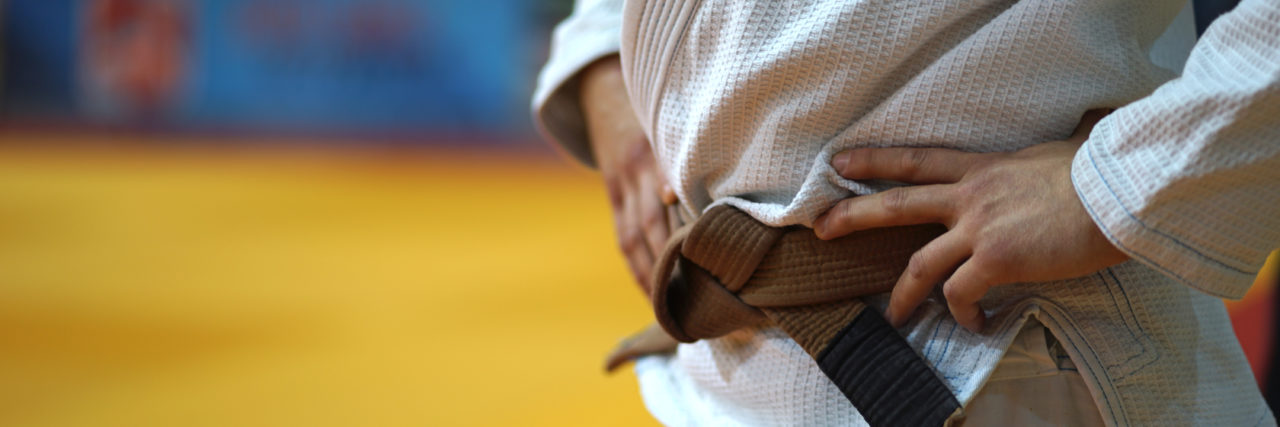I train Brazilian jiu-jitsu. This is a grappling martial art, which means it is closer to wrestling than it is to boxing. In this sport and self-defense, we learn how to take our opponents to the ground and then “convince” them to submit through joint manipulation or choke holds.
I also struggle with mental illness, and here are four reasons why Brazilian jiu-jitsu helps.
1. Physical exercise
As someone studying to become a recreational therapist, I know the power physical exercise has on the mind. This is not to say there aren’t days I go to BJJ feeling down, I grapple feeling down, and I leave feeling down. But most of the time getting the body moving can wake me up, give my brain a boost, and keep my body healthy. Not to mention the wonderful euphoria of taking out your frustrations at the mental illness on an opponent in a healthy way!
2. Physical contact
The studies about the benefits of physically touching someone are also endless, and this is a contact sport. Often we distance ourselves from others, leaving us lonely and craving comfort. You may think attacking and being attacked would not feel that great, but we have a saying in BJJ: “Your partner is your most precious training equipment.” There is a special camaraderie that happens between two people who respect each other enough to almost hurt their partner or to know they will almost hurt you so you both can learn and grow from each other.
3. Humility
Everyone who trains Brazilian jiu-jitsu remembers their first month when they were tapped out by a person half their size. I often say BJJ is “the little man sport” because it has less to do with size and strength and more to do with leverage and knowledge. This means not only do I still lose to people a lot smaller and “weaker” than me but I sometimes also lose to people lower ranked than me. There is nothing more humbling than to essentially yell, “Uncle!” because your opponent defeated you. But there is also some power that comes from having something tangible to submit to and learn from and improve upon when it feels like you are constantly fighting forces that are invisible.
Getting help also requires humility, whether it be asking a family member or friend for help, going to see a therapist, or trying a new medication. Remember, there is nothing more arrogant than using humility as an excuse to not get help.
4. There is no silver bullet.
Silver bullets are famous for being able to defeat any werewolf, no matter how large or ferocious. In Brazilian jiu-jitsu, we teach that there are no silver bullets. There is not one move you will always be able to use on any competitor or attacker and it will always work. Sometimes it is because they know the perfect defense against it, and other times it’s because of the way their body type affects the move.
The same is true of mental illness. Some people may be able to find one thing that will always cheer them up when they are feeling depressed, or they will find one thing that will calm them when they are anxious. But I have never met any of them. I think we understand better than mentally healthy people that there are no quick fixes, only hard work and trial and error.
Getty image by Miljan Živković.

